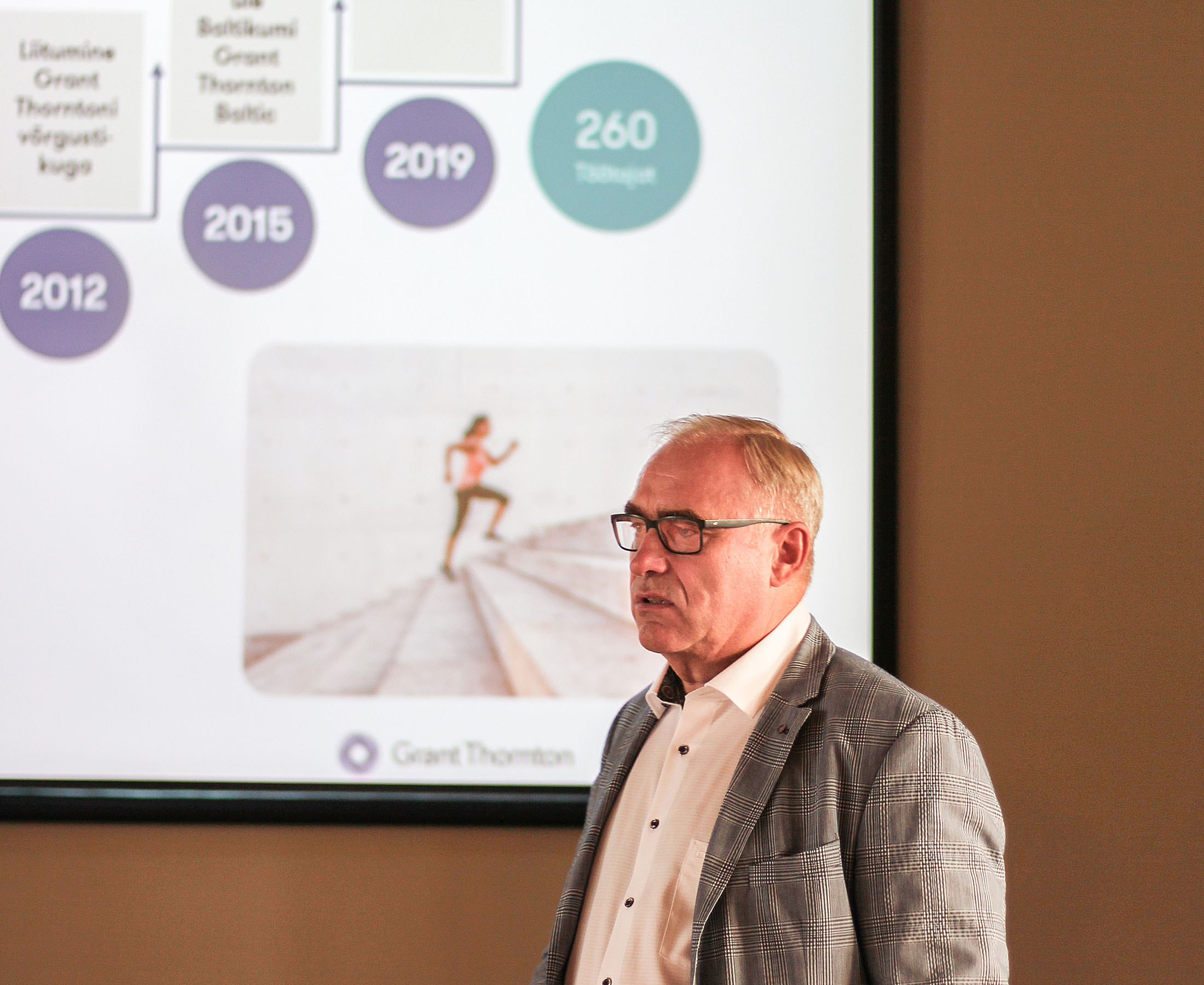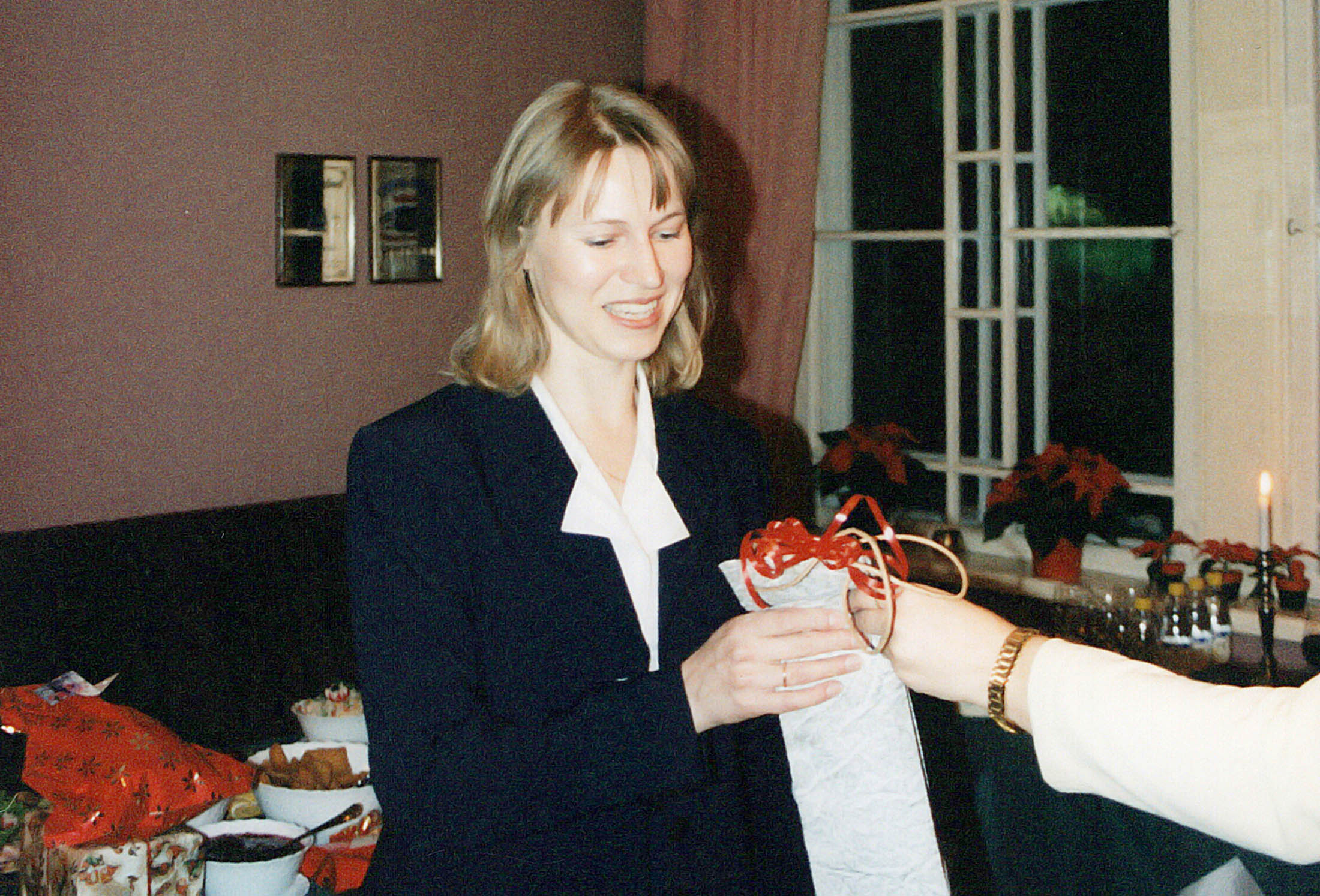Life at Grant Thornton
Accountants, auditors, lawyers, tax advisers, business advisers… Your first thought in terms of the people who hold these jobs might be that you associate them with grey suits, complicated jargon and excessive formality.
Perhaps that is true elsewhere, but not at Grant Thornton Baltic!
True, our employees sometimes wear sharp suits, but they are always friendly and helpful, talk about complex things in a simple way, appreciate a sense of humour and love spending time with their colleagues outside work. Although the team has grown to more than a hundred members over the years, there is still a strong sense of team spirit and a one-for-all-and-all-for-one attitude – no colleague is left without support and help is sometimes offered before the person in need even has a chance to ask for it.
Over time, the principle of giving employees the freedom to act and with it the responsibility to move towards their objectives has also been valued. The combination of freedom and responsibility is invaluable in supporting people’s development, and the results are there for all to see: it is not uncommon for someone to evolve from an assistant into a middle manager or even a partner at Grant Thornton Baltic.
Mati Nõmmiste believes that a company can only grow sustainably if it knows how to retain and develop its employees and foster an inclusive organisational culture.
We also believe that if you don’t know something, you should learn it – after all, ready-made specialists don’t grow on trees. As long as you have the will to learn, you will find teachers to enlighten you. Accountant Ene Rahula, who joined Rimess in 1993, has a story to tell about this. “I used to work in the Polümeer factory, focusing on one narrow section as an accountant, and it just wasn’t interesting enough for me,” she recalls. “When I heard that Rimess was looking for an accountant, I took the bold step of putting myself forward for the job, despite the fact that I didn’t have a lot of work experience. Mati Nõmmiste didn’t see that as a problem though and promised to teach me. And he did – Mati’s an excellent teacher!”
Ene Rahula joined Rimess in 1993 and is the longest-serving employee after Nõmmiste. Photo from a Christmas party in the 1990s.
Of course, the job itself also teaches those who do it. Whether you are a beginner accountant, an assistant accountant or another specialist, new employees can get involved and use their heads from day one. Sworn Auditor Tarmo Rahkama, who started working as an auditor’s assistant in 2007 and became a partner in the company 13 years later, was a third-year economics student at Tallinn University of Technology when he joined Rimess. “In my first few weeks on the job I was immediately roped in to projects, so I was able to learn on the job under the guidance of my colleagues,” he explains. “The induction programme included training on audit methodology, tools, documentation and other essentials as well. All of this took place in parallel with actual work, so I was able to get my first audit project off the ground as early as that February.”
Terje Liiv, who joined Grant Thornton Baltic as its client experience manager in 2015, says of the start of her career that people are trusted at Grant Thornton Baltic and offered the opportunity to learn and develop on the job. “I’d only been working there for three days when the head of the Accounting Department, Anastasia Borovaja, came up to me and said that one of our major clients needed a client manager, and would I like to take it on,” she recalls. “Of course I said yes!”
As well as learning work methods from colleagues, you can also take lessons from them in leadership. Merle Rõbovõitra, a long-time group leader and sworn auditor, recalls one of the management tools used by Eva Veinberg, one of the founders of Rimess and a partner at the company until 2016. “Our business is a people business, in terms of both client relationships and colleague relationships,” she says. “Eva had this ability to see which employees fitted together as people. That’s why she got people whose synergy was most effective for the company working in tandem. I realised myself that it works, and I occasionally use the technique myself.”
Aivar Kangust, who was an audit partner at Grant Thornton Baltic from 2010-2021, says it is the manager’s job to ensure good relations within the team and that those who work shoulder to shoulder, metaphorically speaking, have to get along well. “When working with people, it’s important to understand them and to make sure the work goes well,” he advises. “There are 30 employees in the Audit Department, and a special team is set up for each client. I sent out about 150 auditor opinions per year, so the number of teams must have been the same. Occasionally people didn’t work all that well together, and there were some who didn’t work well with particular clients. In that case we had to make changes to the teams, talking openly about the reasons why. There was no point beating around the bush.”



